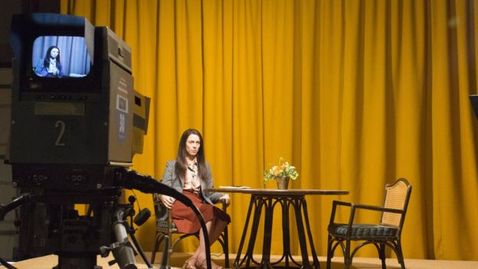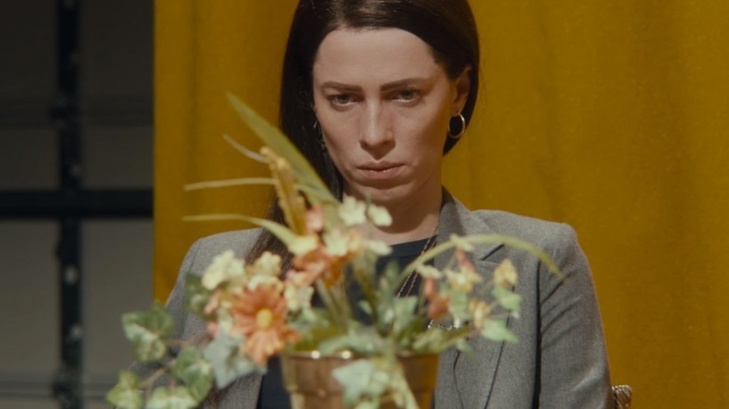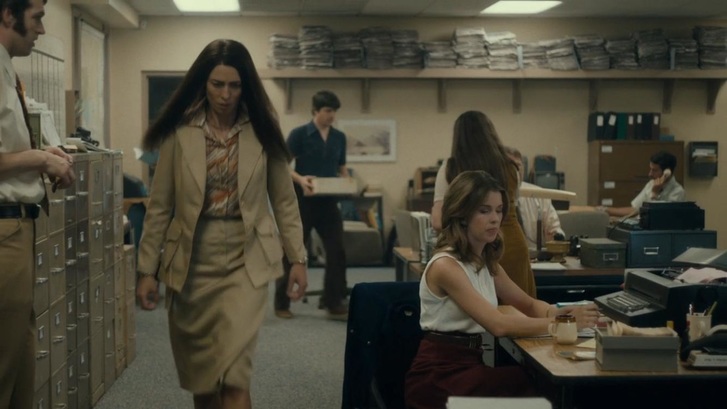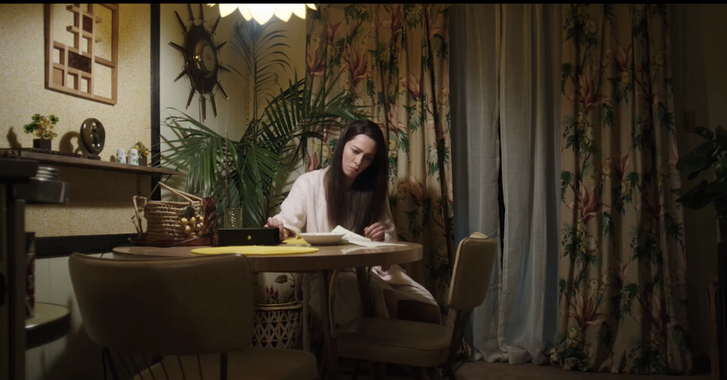 While I'm a major fan of Antonio Campos, having liked his first two features a great deal, I must admit I was very concerned about seeing Christine after experiencing Robert Greene's phenomenal Kate Plays Christine, a documentary also examining the last days of Christine Chubbock, a new reporter in Sarasota, Florida who committed suicide on air in 1974. Alas, the concerns of Campos' Christine being exploitative were quickly eviscerated from my mind as I started to watch, as I was quickly reminded how much of a gift it can be for any cinephile when two great filmmakers tackle the same subject matter in different ways. Much like Christine Chubbock herself, Antonio Campos' Christine is a meticulously constructed character study, a film that features the performance of Rebecca Hall's career, who is able to contrast the strong-minded, career-driven toughness with the fragility Chubbock had, a woman who felt the quiet sting of loneliness due at least in part to her inability to form a personal connection, specifically companionship with someone else. Christine Chubbock's emotions are plastered all over the screen in Campos' film, the loneliness, solitude, pain, and feelings of insignificance combine to create a vivid and haunting deconstruction of depression and self-doubt. A phenomenal characterization that is supremely well acted, the story of Christine is absolutely gut-wrenching from the beginning to its chilling conclusion, focusing much more on tapping into the emotions of a character and how one could go to such drastic conclusions, with social/political commentary centered around guns, the sensationalist media, and discrimination taking a backseat to the individual in Christine, a real life human being who fell so far that she resorted to such a tragic act. Campos' film shows great sympathy for Christine Chubbock, a woman who decided to kill herself on live television, with the whole film being emotionally exhausting and tense from start to finish even though I knew exactly what the end result would be. At the same time, Christine as a film doesn't neglect personal accountability, fairly acknowledging the inherent selfish nature of suicide, showcasing how self-hatred is essentially a self-fulfilling prophecy while simultaneously still acknowledging Chubbock's personal and professional hardships. The final scene of the film is a perfect example of Campos' inability to not tackle such a complex story from a singular angle, with Jean, Christine's closest thing to a friend, returning home to her apartment. Simple enough in execution, Jean in her living room is visually presented in the same context as Christine at her home, one of solitude, alone, as if to suggest loneliness is simply a part of the human condition. Antonio Campos direction is subtle and calculating throughout Christine, showing a pensive eye for where the camera should be at times, effectively building the tension through visual storytelling. When Christine is interacting with other characters, multiple times we find Campos' fixating on Christine no matter who is talking, choosing instead to gaze, exposing the quiet depression and pain Christine has bottled up inside. Meticulous in execution and emotionally exhausting, Antonio Campos' Christine is a powerful character study featuring what will most likely be the best performance of the year, a film that shows respect for its subject, attempting as best as a narrative can to truly understand the nature of such a tragic story of a strong, intelligent woman who falls into darkness.
0 Comments
Leave a Reply. |
AuthorLove of all things cinema brought me here. Archives
June 2023
|



 RSS Feed
RSS Feed
